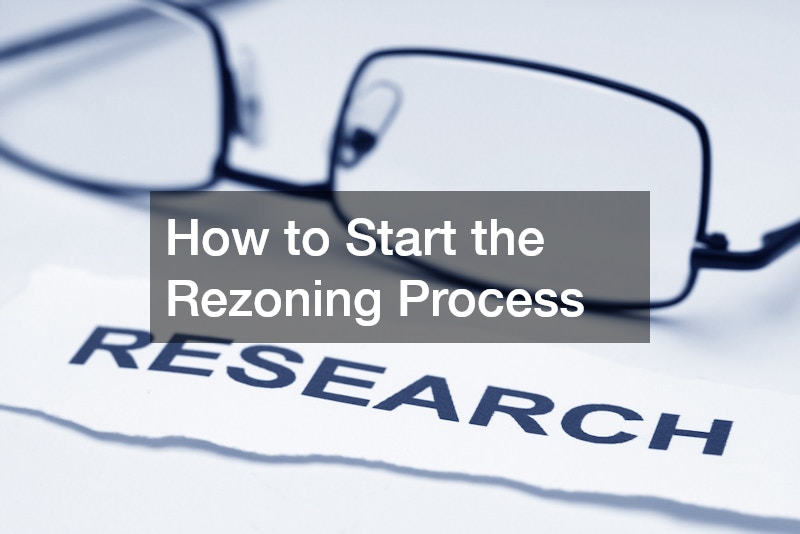Does Rezoning Increase Property Value? A Complete Guide
If you’re a property owner or investor, you might have heard about rezoning as a way to increase property value. But what exactly is rezoning, and does it always lead to a higher property value? This article will help you understand what rezoning is, how it impacts property value, and what you need to consider before pursuing it.
What Is Rezoning?
Rezoning is the process of changing the zoning classification of a piece of property. Zoning laws determine how land in specific areas can be used. For example, a property might be zoned for residential use, commercial use, or agricultural use. When a property is rezoned, its classification changes to allow different uses.
Does Rezoning Increase Property Value?
The answer depends on several factors, but in many cases, rezoning can increase property value, especially if the new zoning allows for more profitable uses of the land.
Here’s how rezoning might increase property value:
- More Development Opportunities: If a residential property is rezoned for commercial or mixed-use purposes, its value could increase significantly because commercial land is often more valuable than residential land. Developers may see the potential to build retail spaces, office buildings, or multi-family housing, which can bring in higher returns.
- Higher-Density Zoning: If a property is rezoned to allow for higher-density development (for example, switching from single-family zoning to multi-family zoning), it can accommodate more units or buildings, making it more valuable to developers or investors.
- Improved Marketability: Rezoned land can attract a wider range of buyers. For example, commercial investors or businesses might be more interested in a property zoned for mixed-use or retail, opening up more potential for selling or leasing the property.
However, rezoning doesn’t always lead to higher property value, and there are several factors to consider.
Factors That Affect Whether Rezoning Increases Property Value
- Location and Market Demand
- Rezoning may add value in areas with high demand for the new zoning classification. For example, if there’s strong demand for commercial development in your area, rezoning your property to commercial use could make it more attractive and valuable to potential buyers.
- On the other hand, if there’s little demand for the new zoning category, the rezoning may not significantly increase value.
- Costs Associated with Rezoning
- Rezoning isn’t a free or simple process. You may need to pay for legal services, application fees, and sometimes even infrastructure improvements like road access or utilities. These costs could offset the potential increase in property value.
- Also, if the rezoning requires major changes to comply with the new zoning rules, such as updating buildings or structures, these costs should be considered.
- Neighborhood Compatibility
- If your property’s rezoning doesn’t align with the surrounding neighborhood, it could face resistance from the community or even legal challenges. For example, rezoning a residential area for commercial use may raise concerns about traffic, noise, or environmental impacts.
- Community opposition can delay or stop the rezoning process, potentially limiting your ability to capitalize on the new zoning.
- Long-Term Investment
- Rezoning could lead to significant value increases, but the benefits might not be immediate. For example, it may take time for a market shift or for developers to recognize the potential of the newly zoned property. If you’re thinking of rezoning, consider whether it’s a long-term strategy rather than a quick boost in value.
When Does Rezoning Not Increase Property Value?
Rezoning doesn’t always lead to an increase in property value. Here are a few scenarios where rezoning might not pay off:
- Downzoning: Sometimes, rezoning involves changing a property to a less profitable use, such as from commercial to residential or from high-density to low-density use. This kind of rezoning (called downzoning) often results in a decrease in property value, as the land can no longer be used for higher-value purposes.
- Unfavorable Market Conditions: If the market for the new zoning use is weak (for example, there’s already an oversupply of commercial properties in the area), rezoning might not lead to a significant increase in value.
- Cost of Compliance: If the new zoning laws require costly upgrades to your property (such as new parking lots, ADA compliance, or infrastructure improvements), the increase in value from the rezoning might not outweigh the costs of making these changes.
How to Start the Rezoning Process

If you’re thinking about rezoning your property, here are some steps you’ll need to follow:
- Research Local Zoning Laws: Each city or county has its own zoning laws, and these laws will determine whether rezoning is even possible for your property. You’ll need to check what the current zoning is, what the future land use plans are, and if the local government allows rezoning in your area.
- Consult with a Real Estate Expert: Talk to a real estate agent or appraiser familiar with the local market. They can help you understand whether rezoning is likely to increase your property value and by how much.
- File a Rezoning Application: You’ll need to submit a formal application to your local zoning board or planning commission. This process usually involves public hearings, and sometimes neighbors or community groups can express support or opposition to your request.
- Prepare for Possible Objections: Be ready to address concerns from the community or local officials about how the rezoning might impact traffic, noise, or the environment.
- Work with Professionals: You may need a lawyer or zoning expert to help you navigate the rezoning process, especially if it’s complex or faces opposition.
Next Steps: Is Rezoning Right for You?
Rezoning can be a great way to increase your property’s value, but it’s not without risks. Before you begin, make sure to:
- Evaluate your goals: Are you planning to develop the property yourself, or are you hoping to sell it at a higher price once it’s rezoned?
- Understand the local market: Will the new zoning make your property more attractive to buyers or developers?
- Consider the costs: Legal fees, application fees, and possible construction or infrastructure updates could reduce the profitability of the rezoning.
Conclusion
So, does rezoning increase property value? In many cases, yes, but the outcome depends on factors like location, zoning type, and market demand. Rezoning can open new opportunities for your property, such as allowing for more profitable uses like commercial development or higher-density housing. However, much like adding a fence, rezoning requires careful planning, as it can come with significant costs and potential community pushback. Both can enhance the value of your property when done strategically, but it’s important to evaluate the benefits and risks thoroughly.
Before making a decision, ensure you do your research, consult with local experts, and understand how rezoning or other property improvements, like adding a fence, can impact your property’s value. With the right approach, rezoning can be a valuable tool in increasing your property’s worth.



